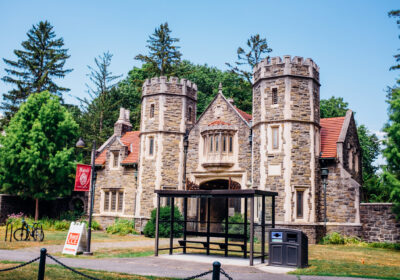Lisa Damour’s NYT’s article “Getting In to College Doesn’t Mean Students Are Ready to Go” is a must read for parents of high school students. It points out some sad and scary truths about high school and college students today, but I see it more positively as a call to action.
I love that most of the students I work with are well-prepared for college life—academic and otherwise—but there are always a few that I fear for as they start freshmen year. They are the ones that end up contacting me near the end of their first semester. Some of them need more academic support, which is easy to provide. Others are just unable to find their way socially and settle into living on their own for the first time. This second bunch also often thinks this means the college or university they attend is not the best fit; I tend to disagree. Although there are some students who for one reason or another are strong candidates for transfer, the problem is usually not the school—it’s them. Issues lingering beneath the surface throughout high school emerge and often result, sadly, in situations like Damour explains in her article.
What Damour describes is just one of the reasons I am a huge fan of gap years, but as she notes, and I have seen in my work with college applicants, getting students to think about delaying the start of college is not easy:
“Of course, the biggest barrier may well be the teenager’s own resistance to delaying enrollment. High school seniors who have secured and celebrated college admission are rarely eager to push the pause button. The drive for autonomy practically defines adolescence and it’s no small feat to bar that door.”
For the reluctant student (and often parents, too), I do see some alternatives to delaying the start of college. Recently, I have been working alongside mental health professionals and mindfulness educators on how best to get information out to students and parents on the importance of pre-college counseling, post-admission. Typically, once a student has decided where they are going to college, I do not hear much from them, except around early summer, when I (hopefully, because I love cards!) get a graduation announcement or thank you note in the mail. Today, I know that needs to change. The benefit of continuing the counseling relationship and providing services up until students leave for college, and even into the start of their freshmen year, is just too important to overlook.
I see pre-college counseling in the form of mindfulness and resilience training as a vital step in ensuring students about to head off to college are equipped with the tools they need to successfully navigate the transition to and thrive in college. And, if a student is really not ready to leave home in the fall, it is often uncovered or made very clear during targeted pre-college counseling activities (if not already brought to light through the college application process). Taking steps to gear up for college post-admission may reveal a student is not good to go. Those that are will only be better prepared to face the challenges that come with the high school-college transition, armed with the tools and mindset they need to thrive during the next phase of their educational journey.


